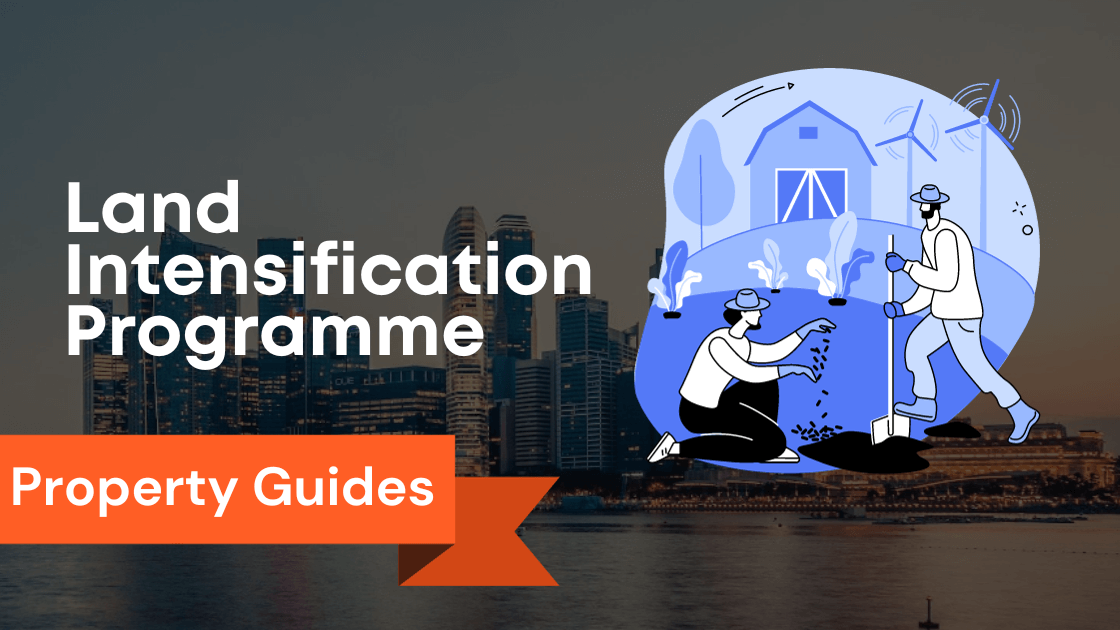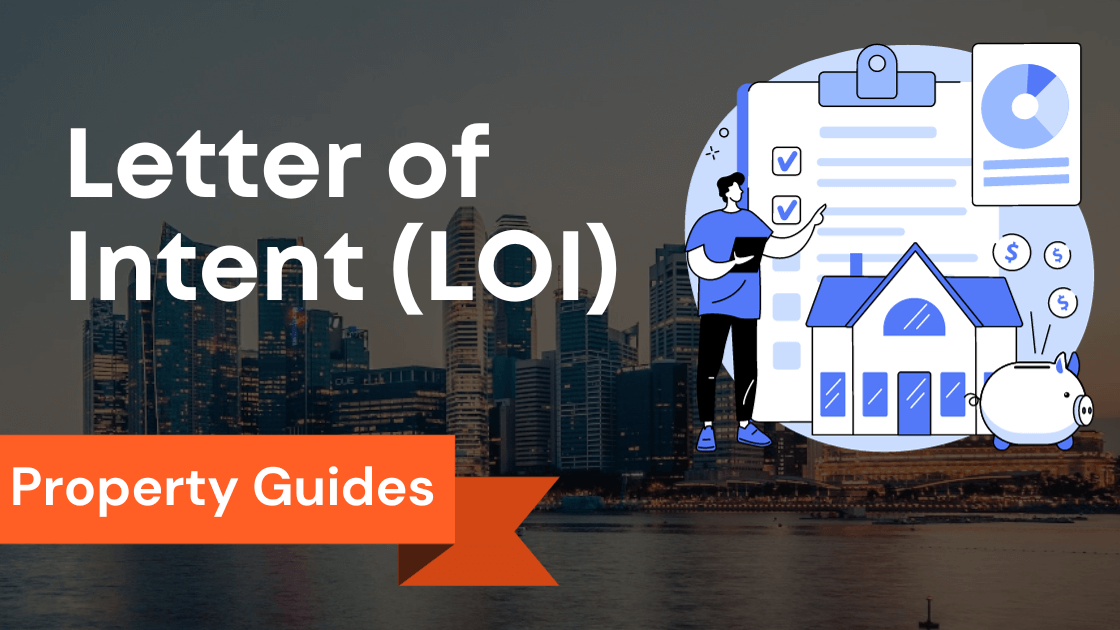
The Housing and Development Board (HDB) plays a vital role in providing affordable housing solutions for the residents of Singapore.
Over the years, the HDB has introduced various schemes and policies to ensure that Singaporeans have a roof over their heads.
One of the most significant schemes introduced by the HDB is the Selective En Bloc Redevelopment Scheme (SERS).
In this article, we will take a comprehensive overview of SERS and explore its various aspects.
Key Takeaways
- Evolution of HDB: HDB was established in 1960 for affordable housing; SERS introduced in 1995 for older estates.
- CPF and HDB: CPF for savings, including homeownership; HDB SERS renews flats; HDB Hub for services.
- SERS Selection: Factors like age, condition, and potential guide estate selection; not all estates are chosen.
- Benefits of SERS: New flats in the same area, financial compensation, and quality living conditions.
- Resale vs. Replacement: Choose between resale and new replacement flats based on preferences.
- Market Valuation: Understand market value for maximizing financial gain during SERS.
- Urban Redevelopment: SERS optimizes land use and enhances housing estates; know its impact.
- Rehousing Options: Various rehousing options and subsidized prices for SERS flat owners.
- Mature Estates in SERS: Even mature estates can benefit from SERS, leading to modern housing.
- Role of Property Agents: Property agents provide guidance and support throughout the SERS process.
Understanding SERS: A Comprehensive Overview
The Evolution of HDB and the Birth of SERS
The HDB was established in 1960 with the aim of providing affordable housing for all Singaporeans.
The initial focus of the HDB was on building new housing estates to meet the growing demand.
However, as the years went by, it became clear that some of the older HDB estates were in need of redevelopment.
In 1995, the HDB introduced the Selective En Bloc Redevelopment Scheme (SERS) to address this issue.
SERS allows the HDB to rejuvenate older HDB estates by acquiring the existing blocks and redeveloping them into new and modern housing units.
This scheme not only improves the living conditions for residents but also helps to maximize land use in Singapore.
The Central Provident Fund (CPF) and the Housing Development Board (HDB) play crucial roles in Singapore’s housing market.
CPF offers a comprehensive social security savings plan that ensures citizens have enough savings for retirement, healthcare, and homeownership.
HDB SERS (Selective En bloc Redevelopment Scheme) is a government initiative that seeks to renew older flats and enhance the living environment of residents.
The newly established HDB Hub is a centralized platform for citizens to access housing-related services.
SERS projects, undertaken by the Ministry of National Development, involve the redevelopment of selected aging HDB precincts.
Private en-bloc sales, on the other hand, occur when private developers acquire existing HDB properties.
The benefits of SERS rehousing are ample, as residents get priority in choosing new flats and may receive compensation for any inconveniences faced during the relocation process.
The SERS scheme also collaborates with institutions like the National University of Singapore to provide research support to continually improve the program and maximize its benefits for affected residents.
With the commitment of HDB and the efforts of various stakeholders, citizens can confidently rely on these initiatives to ensure future housing stability.
Is Your HDB Estate Chosen for SERS?
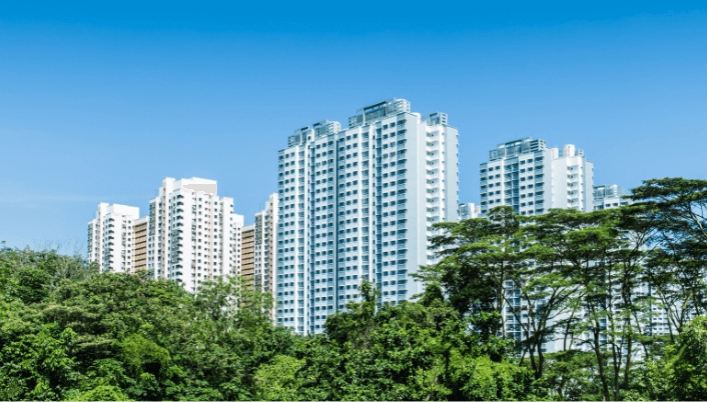
SERS Potential: Is Your HDB Estate on the Radar?
One of the most common questions HDB flat owners have is whether their estate will be selected for SERS.
The HDB takes into consideration several factors when deciding which estates to include in the SERS program.
These factors include the age of the estate, the condition of the buildings, and the potential for redevelopment.
It is important to note that not all HDB estates will be selected for SERS.
The HDB has a strict selection process in place and only chooses estates that meet their criteria.
However, if your estate is selected for SERS, it can bring about numerous benefits for you as an HDB flat owner.
The Benefits of Selective En-bloc Redevelopment Scheme (SERS)
SERS offers several benefits for HDB flat owners.
Firstly, it provides an opportunity for owners to upgrade to a brand-new replacement flat.
These replacement flats are usually located within the same vicinity as the original block, allowing residents to stay within their familiar neighborhood.
Additionally, replacement flats are built to the latest design and safety standards, ensuring a higher quality of living for residents.
Another benefit of SERS is the potential for financial gain.
When the HDB acquires the blocks for redevelopment, they offer compensation to the flat owners.
The amount of compensation depends on various factors, such as the size and location of the flat.
However, in most cases, the compensation is generous and can provide owners with a significant financial boost.
Resale vs. Replacement Flats: What to Expect in SERS
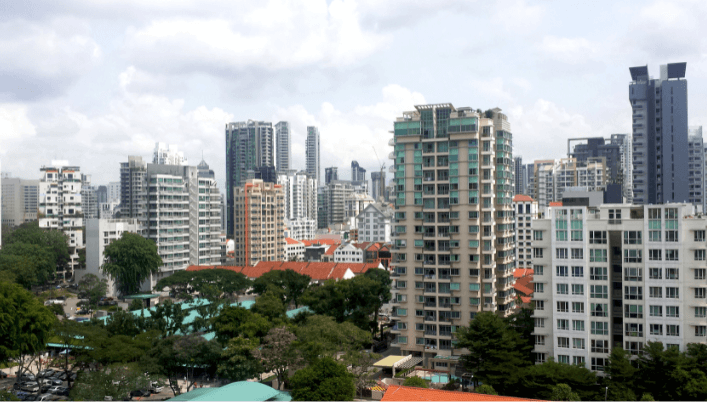
One of the key considerations for flat owners in SERS is whether to opt for a resale flat or a replacement flat.
Resale flats refer to existing HDB flats that are available for purchase in the resale market.
On the other hand, replacement flats are new flats that are specifically built for SERS flat owners.
Both options have their own pros and cons.
Resale flats offer a wider range of choices in terms of location and price.
However, they may not be as new or modern as replacement flats.
Replacement flats, on the other hand, provide owners with a fresh start in a brand new flat.
These flats are equipped with the latest amenities and offer a higher quality of living.
Ultimately, the choice between resale and replacement flats depends on the preferences and priorities of the individual flat owner.
The Housing & Development Board (HDB) has implemented the Selective En bloc Redevelopment Scheme (SERS) since 1995, as a means to optimize land use and rejuvenate older housing estates.
One of the estates that underwent SERS exercises was the Bukit Ho Swee Estate, with its residents being given the opportunity to decide on their replacement flat.
Once the decision is made, they are required to book their new flat at a specific time period.
The residents can also choose to receive compensation in cash or CPF savings, depending on their preferences.
To facilitate the process, the HDB works in conjunction with a real estate agency, which assists in providing necessary information to the residents and guiding them throughout the relocation journey.
The replacement site is carefully selected to ensure convenience and accessibility for the residents, ensuring that their new homes meet their needs and preferences.
Through the SERS initiatives, HDB aims to improve living conditions and further enhance the quality of life for its residents.
The Market Valuation Puzzle in SERS
One of the challenges faced by flat owners in SERS is determining the market value of their flats.
The valuation of flats in SERS can be complex due to various factors such as the condition of the flat, the location, and the potential for redevelopment.
To address this issue, the HDB provides a price list for SERS flats, which serves as a guideline for flat owners and potential buyers.
It is important for flat owners to understand the market valuation of their flat before making any decisions.
This will ensure that they are able to make informed decisions and maximize their financial gain.
Navigating the Urban Redevelopment Strategy in SERS
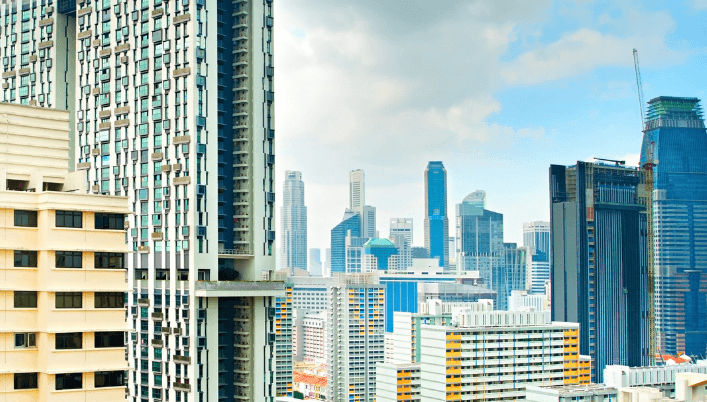
SERS is a crucial part of Singapore’s urban redevelopment strategy.
It allows the HDB to optimize land use and create vibrant and sustainable housing estates.
The redevelopment of older estates not only improves the living conditions for residents but also enhances the overall landscape of the neighborhood.
As a flat owner in a SERS estate, it is important to understand the urban redevelopment strategy and how it will impact your living environment.
This will enable you to make well-informed decisions and embrace the changes that come with the redevelopment process.
Rehousing Options and Subsidized Prices in SERS
One of the key concerns for HDB flat owners in SERS is the rehousing options and subsidized prices available to them.
The HDB provides various rehousing options for flat owners, including replacement flats, Build-To-Order (BTO) flats, and rental flats.
The availability of these options depends on the individual’s eligibility and preferences.
In addition to the rehousing options, the HDB also offers subsidized prices for flat owners in SERS.
These subsidized prices are lower than the market prices and enable flat owners to afford a new flat in the redeveloped estate.
Selective En-bloc Redevelopment Scheme in Mature Estates
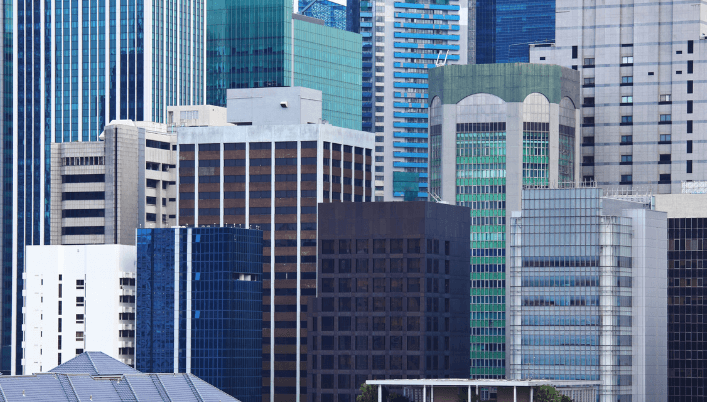
Selective En-bloc Redevelopment Scheme (SERS) is not limited to just older estates.
The HDB also considers mature estates for redevelopment under SERS.
Mature estates are those that have reached a certain level of development and have a higher concentration of amenities and facilities.
The redevelopment of mature estates under SERS brings about significant benefits for residents.
It allows for the creation of more modern and sustainable housing estates, while preserving the existing amenities and facilities.
This ensures that residents can continue to enjoy the convenience and amenities that the mature estate has to offer.
The Role of Property Agents in SERS
The process of going through SERS can be complex and overwhelming for HDB flat owners.
This is where property agents play a crucial role.
Property agents are well-versed in the SERS process and can provide valuable guidance and support to flat owners.
Property agents can help flat owners navigate through the various stages of SERS, from the announcement of the scheme to the selection of replacement flats.
They can also assist flat owners in understanding the compensation process and ensuring that their interests are protected throughout the entire process.
Understanding the Strict Criteria of SERS Selection
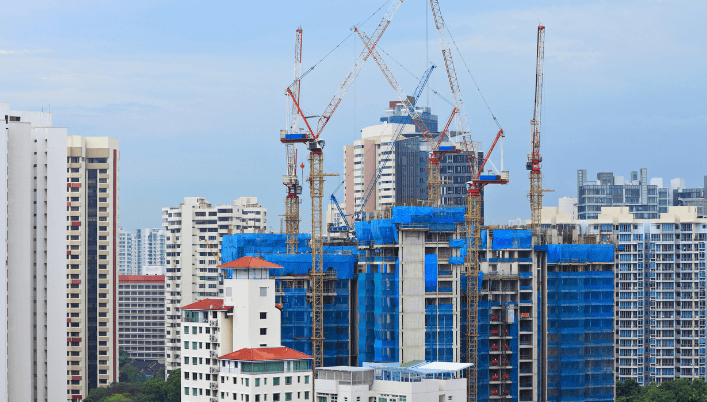
The selection of estates for SERS is not arbitrary.
The HDB has a strict set of criteria that they consider when deciding which estates to include in the scheme.
These criteria include the age of the estate, the condition of the buildings, and the potential for redevelopment.
It is important for flat owners to understand these criteria and how they might affect their chances of being selected for SERS.
By understanding the criteria, flat owners can better prepare themselves and make informed decisions regarding their housing options.
The HDB’s recent announcement allowing HDB dwellers of new 99-year lease flats to be eligible for the Selective En bloc Redevelopment Scheme (SERS) has sparked both interest and concern among homeowners.
While the prospect of being able to purchase a replacement HDB flat through SERS is appealing for many, there are several factors that need to be considered.
Firstly, the HDB officer-in-charge of SERS acquisition must carefully choose the estates deemed suitable for redevelopment, based on various criteria such as age, location, and potential for growth.
Homeowners should also be aware that being eligible for SERS does not guarantee that their flat will be chosen for redevelopment.
Additionally, there is the question of the compensation and benefits homeowners will receive in exchange for their current flat.
It is crucial for HDB to provide transparent and fair processes in order to address the concerns and uncertainties surrounding this new policy.
This exhibition will aid in providing homeowners with the necessary information and clarify any doubts they may have.
Stories of Transformation: Towns Redeveloped Through SERS
SERS has played a significant role in transforming various towns in Singapore.
One example is the town of Macpherson, which underwent a major transformation through SERS.
Old HDB blocks were acquired and replaced with new and modern housing units, bringing about a positive change in the living environment for residents.
Another example is Tanglin Halt, a mature estate that went through the process of SERS.
The estate was redeveloped into a vibrant and sustainable housing estate with new amenities and facilities for residents to enjoy.
These stories of transformation highlight the positive impact that SERS can have on the lives of residents, as well as the overall landscape of the neighborhood.
HDB would grant users and residents the authority to decide on their preferred replacement flat, allowing them to book their new accommodations.
This process takes into consideration the owner of the flat and provides them with the opportunity to select a replacement site that aligns with their needs and preferences.
The decision-making power lies in the hands of the individuals directly affected by the replacement process, ensuring their satisfaction and comfort in their new home.
Furthermore, HDB recognizes the emotional attachment individuals may have towards their previous residence and acknowledges the importance of preserving these sentiments.
To honor this, individuals are even given the opportunity to name their new flat, allowing for a sense of personalization and connection to be established within their new living space.
This approach enhances the overall experience for users and residents and demonstrates HDB’s commitment to providing a supportive and inclusive housing environment.
hdb’s selective, offered under hdb’s,hdb might, users would, whether your hdb,sers exhibition,hdb announced, makes sers,hdb replacement,sers residents, decide which replacement flat, book your new flat, replacement site as well, name your new flat, move to the designated replacement, new flat by submitting, buy a new flat, market value of the flat
Private en bloc refers to the process of a group of private property owners selling their entire development collectively to a developer for redevelopment.
The Housing and Development Board (HDB) has a selective approach when it comes to offering such opportunities under the Selective En Bloc Redevelopment Scheme (SERS).
In cases where HDB determines that a particular housing estate has the potential for redevelopment and can benefit from SERS, they would announce it through an exhibition.
The decision to trigger SERS is carefully considered by HDB, taking into account various factors, such as the state of the estate and its potential for redevelopment.
If your HDB flat is selected for SERS, you will be eligible for the SERS rehousing benefits, which include either a new flat or monetary compensation.
HDB’s commitment to providing suitable replacement housing is a crucial aspect of SERS, ensuring that residents’ needs are met during the redevelopment process.
The introduction of SERS demonstrates HDB’s progressive approach to urban planning and redevelopment, enhancing the quality of living for residents in Singapore.
The Financial Aspect: Stamp Duties, Compensation, SERS Potential and More in SERS

When going through SERS, it is important for flat owners to consider the financial aspects of the scheme.
This includes stamp duties, compensation, and other costs associated with the redevelopment process.
Stamp duties are one of the costs that flat owners need to take into account.
When flat owners acquire a replacement flat under SERS, they are required to pay stamp duties on the purchase of the new flat.
Compensation is another important aspect to consider.
The amount of compensation flat owners receive will depend on various factors, such as the size and location of the flat.
It is important for flat owners to understand the compensation process and ensure that they receive fair and adequate compensation.
The Selective En Bloc Redevelopment Scheme (SERS) is an important scheme introduced by the Housing and Development Board (HDB) to rejuvenate older HDB estates in Singapore.
SERS provides numerous benefits for flat owners, including the opportunity to upgrade to a brand-new replacement flat and the potential for financial gain through compensation.
It is important for flat owners to understand the various aspects of SERS and make informed decisions regarding their housing options.
With careful consideration and guidance from property agents, flat owners can navigate through the SERS process and embrace the positive changes it brings to their lives.
Conclusion – Development Board
Evolution of HDB and the Birth of SERS
Established in 1960, the Housing and Development Board (HDB) was created with the primary goal of providing affordable housing.
Over time, older HDB estates required rejuvenation, leading to the inception of the Selective En Bloc Redevelopment Scheme (SERS) in 1995.
This visionary scheme rejuvenates aging estates, optimizing land use and enhancing living conditions.
Is Your HDB Estate Chosen for SERS?
The selection process for SERS estates is rigorous, considering factors like age, building condition, and redevelopment potential.
Not all estates are chosen, but if yours is, it brings significant advantages, including enhanced flat prices and housing benefits.
Benefits of Selective En-bloc Redevelopment Scheme (SERS)
SERS offers flat owners the chance to upgrade to modern replacement units within their familiar neighborhood.
It also holds financial potential, with generous compensation packages, removal allowances, and potential financial resources.
Resale vs. Replacement Flats: What to Expect in SERS
Flat owners face the choice between resale and replacement flats.
Resale flats offer diversity in private properties and Bukit Merah, while replacement flats promise modernity and renewed 99-year leases.
The decision hinges on individual preferences, financial planning, and the financial aspect of SERS.
The Market Valuation Puzzle in SERS Determining the market value of SERS flats can be complex due to factors such as the condition of the flat, the location in Bukit Batok, and the potential of redevelopment.
The HDB provides price lists for SERS flats, aiding in potential price speculation and subsidized price risk.
Navigating the Urban Redevelopment Strategy in SERS SERS aligns with Singapore’s urban redevelopment strategy, enhancing housing estates like Woodlands Town Centre and MacPherson Lane.
It not only improves housing benefits but also revitalizes prime land spaces between blocks.
Rehousing Options and Subsidized Prices in SERS Various rehousing options, including Build-To-Order (BTO) flats and rental flats in Ang Mo Kio SERS, cater to flat owners’ needs.
Subsidized prices, including resale prices, ensure affordability for flat owners and residents.
Selective En-bloc Redevelopment Scheme in Mature Estates Mature estates like Tiong Bahru and Jurong are also considered for redevelopment under SERS, ensuring a harmonious blend of modernity and established amenities.
These mature towns’ prices are subject to demand for flats.
The Role of Property Agents in SERS Property agents play a pivotal role in guiding flat owners through the complex SERS process, safeguarding their interests, and aiding in the selection criteria process.
Understanding the Strict Criteria of SERS Selection Transparent criteria, including strict selection criteria, drive SERS estate selection, necessitating flat owners’ comprehension for informed decisions on ownership blocks.
Stories of Transformation: Towns Redeveloped Through SERS Notable transformations in towns like Macpherson, Bukit Panjang, and Tanglin Halt exemplify the positive impact of SERS on residents’ lives, enhancing the resale market and property developer agreements.
The Financial Aspect: Stamp Duties, Compensation, and More in SERS Flat owners must consider stamp duties, compensation, and additional costs in their financial planning.
This financial aspect plays a vital role in the success of SERS.
In conclusion, the Selective En Bloc Redevelopment Scheme (SERS) is a transformative force in Singapore’s public housing evolution, offering various housing benefits, resale prices, and ownership block opportunities.
Understanding its complexities and embracing its benefits empowers flat owners to navigate this transformative journey effectively while ensuring financial gain and the revitalization of mature towns.
Frequently Asked Questions
What is the Selective Enbloc Redevelopment Scheme (SERS)?
The Selective Enbloc Redevelopment Scheme (SERS) is a program introduced by the Housing Development Board (HDB) in Singapore. It is designed to redevelop older public housing flats and rejuvenate aging HDB estates.
How does SERS work?
Under the SERS, the HDB identifies precincts with potential for redevelopment and offers eligible flat owners the opportunity to move to a new flat in a designated replacement site. The old flats are then demolished, and new housing blocks are built in their place.
What are the benefits of participating in SERS?
By participating in SERS, flat owners are entitled to various benefits such as a SERS grant, compensation for the SERS, and the opportunity to purchase a new flat with a fresh 99-year lease. Additionally, the HDB covers relocation and renovation costs for eligible flat owners who choose to move to a replacement site.
How are replacement sites selected for SERS?
The HDB follows a careful selection process to identify replacement sites for SERS. Factors such as the age and condition of the existing flats, the availability of land, and the potential for redevelopment in the surrounding area are taken into consideration.
Can I choose the location of the replacement site if my flat is selected for SERS?
The HDB allocates replacement units based on the Joint Selection Scheme. While you cannot choose the exact location, the HDB aims to allocate replacement units within the same precinct or nearby blocks to maintain the social fabric of the community.
Will I receive any financial assistance if my flat is selected for SERS?
Yes, if your flat is selected for SERS, you may receive an ex-gratia payment as compensation for the SERS. The amount of the payment depends on various factors such as the size and location of your flat.
Can I apply for SERS if I have already purchased a flat through the HDB's resale market?
Yes, even if you have purchased a flat through the HDB’s resale market, you are eligible to participate in SERS. However, you may be required to pay a resale levy if you had enjoyed a housing subsidy for your current flat.
When was the SERS scheme first launched?
The SERS scheme was first launched in 1995. It was announced by then-Prime Minister Goh Chok Tong during his National Day Rally speech.
Are private developers involved in the SERS program?
Private developers are not directly involved in the SERS program. The HDB carries out all the redevelopment works and manages the entire process.
What happens to residents of neighboring blocks that are not selected for SERS?
Residents of neighboring blocks that are not selected for SERS can continue to live in their current flats. The redevelopment works and relocation only affect the blocks identified for SERS.











